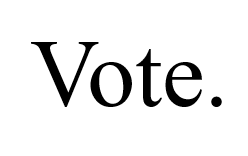The British monarchy is an institution which is over a thousand years old, and Queen Elizabeth II its figurehead. As the longest reigning British monarch (68 years and counting), she has occupied the throne for the majority of most people’s lives. However, she is 94 years old. The Queen is not immortal, despite all evidence to the contrary, and the question of ‘what next?’ may soon become pertinent.
Nor is the answer to this question obvious.
Her successor will be Prince Charles, the Prince of Wales – who will become King Charles III. At 71 years old, he is hardly the young, fresh face which will bring the monarchy into the 21st Century. On top of that, he is not nearly as popular as his mother. A recent YouGov poll placed the Queen at a 74% approval rate (with 10% against her), but gave Prince Charles 46% positive and 24% negative opinion.
Public opinion of Charles’ wife, Camilla, Duchess of Cornwall (30% approval, 31% negative) is considerably worse, and the policy of the royal family reflects this. When Charles and Camilla were married in 2005, Clarence House issued a statement saying that Camilla will not take up the title of Queen Consort when Charles accedes. She will instead be known as Princess Consort.
Camilla also does not currently use the title of Princess of Wales, despite it being her right. This is no doubt out of sensitivity for her predecessor, Diana, Princess of Wales. Indeed, Prince Charles will likely never rid himself of the ghost of his first wife, who died suddenly in 1997. Her death has been a continuous stain on his popularity for the last twenty years, with conspiracy theories claiming his family was involved in bringing it about, and his kingship is not likely to fix that.
The younger generation of royals is much more popular. Popularity polls place Prince William, Duke of Cambridge and Harry, Duke of Sussex, at 67% and 59% approval respectively. However, they have not experienced the periods of severe discontent and anti-monarchist sentiment in Britain as seen at its worse in the 1970s, and there is also a sense that they have less of a feel for what the job is.
William and Harry also seem to have struggled with royal life for years. It did, after all, contribute to the death of their mother when they were young teenagers. In January this year, Harry and Meghan Markle announced that they would be stepping down from the official duties of senior royals and renouncing their HRH titles, after a long-running feud with the British press.
So, can the younger generation be relied upon to rejuvenate the monarchy and will they be given the chance to? This may depend on Charles’ run as king.
What the passing of the Queen will definitely do is call into question the relevance of the monarchy in the future.
At the beginning of the 20th Century, there were only 3 republican states in all of Europe. In the course of 120 years, the British Empire reached its height and was then entirely lost. Two world wars were fought. America has risen to be a global superpower. Most European monarchies have in this time been removed by force or gone quietly. Only 11 remain and Britain is one of them.
The purpose and function of monarchy is obviously very different now to what it once was. Its powers are also greatly reduced, making them more symbolic and ceremonial figureheads than leaders. Ask who holds power in Britain in the present day, and the answer will be whoever occupies Number 10, as opposed to Buckingham Palace. Simply, monarchs are not required to rule anymore.
That is not to say that they do not have a role or that they are not wanted. The Queen is still head of the Commonwealth and the royal family brings in £550 million each year from tourism alone. There is also no pressing need to get rid of them. However, their purpose and what they actually do for this country will seriously be called into question in the next few decades. Depending on what the next generations do during their reigns, the longevity of the crown may not be indefinite.



